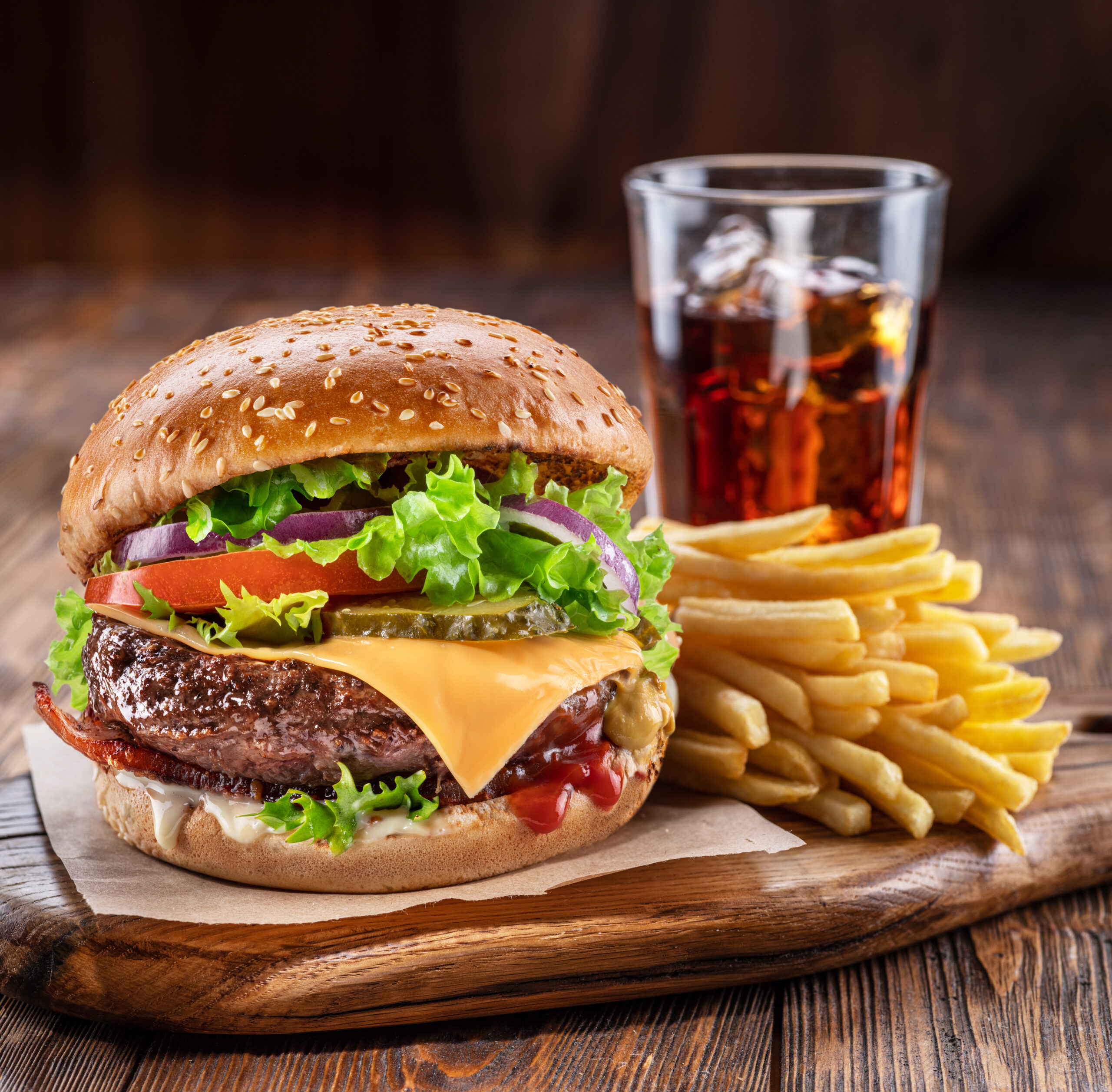Dirty Little Secret About McDonalds Hamburger Meat
 1526
1526 
Have you ever considered how many cows end up in just one burger? It’s not a pretty picture.
McDonald’s sources its hamburger meat primarily from ranchers in the United States, as well as from international suppliers in countries like New Zealand, Australia, and Canada.
Mixing them all together can spread bacteria, and the handling practices in these facilities is typically sub par. This doesn’t even go to mention the way they’re raised on big farms, packed in tight and fed corn and grains.
Processing meat for McDonald’s hamburgers may pose these potential health risks to your diet and fitness.
All this means that you need to be diligent in what you put into your body and not only check labels but also the production methods and the sources of all meat. Give priority to natural care and healthy practices by avoiding misleading advertising and doing your own research. Big fast food companies are more dedicated to their shareholders that they are to your health. For more detailed information, you can refer to the sources mentioned below.
Here are several potential health risks you expose yourself to when you consume a McDonalds Hamburger:
For healthier hamburger options, consider choosing :
Choose Grilling or baking over frying so you reduce the amount of added fat. Be sure to choose health meats as described above. Plus add healthy sides like salads or steamed vegetables so your meal is more balanced.
For even healthier options try some of the following:
This reduces fat content. Plus use sourdough bread and add in plenty of vegetables like lettuce, tomato, and avocado.
Turkey is leaner than beef and is a good source of protein. Plus it has less fat. Use sourdough buns and add in fresh veggies.
This burgers have come a long way in taste- They are now made with beans, lentils and vegetables. They are high in fiber and nutrients. Check labels to be sure they are not overly processed and or have any added sugar, artifical dyes or dangerous preservatives.
Using a Portobello mushroom cap as the patty can actually be very satisfying. It’s a low-calorie, nutrient-rich alternative you should try.
Salmon is high in omega-3 fatty acids especially wild salmon Check out Ora King Salmon from New Zealand as well . Its nutrient profile shows very high omega 3’s. . Use sourdough buns and top with a light yogurt-dill sauce for added flavor and health benefits.
Replace the bun with large lettuce leaves that help to reduce carbs and calories. This works with any type of patty, whether beef, turkey, or veggie.
Quinoa is a complete protein and can be made into a yummy, high in fiber burger patty. It is always healthy to combine it with vegetables and serve on sourdough bread.
Black beans are also high in protein and fiber. You cvan make it very tasty by using spices, onions, and bell peppers.
Bison meat is delicious and actually has more taste than beef! Plus it is very lean and provides a good source of protein and iron. Grill and serve with sourdough buns and fresh veggies.
Use healthy organic farm raised chicken or tuna salad together with Greek yogurt.
These alternatives reduce fat and calorie intake and give you a variety of nutrients essential for a balanced diet. For more tips and information on maintaining a healthy diet and fitness routine, explore healthy lifestyle blogs that offer valuable tips and recommendations.
References:
(1)https://www.greenbiz.com/article/story-mcdonalds-10-year-quest-sustainable-beef
(2)https://www.eatthis.com/this-is-where-mcdonalds-gets-its-meat/
(3)https://www.thedailymeal.com/1406363/mcdonalds-burgers-just-beef/

A new study suggests that a widely used sugar substitute found in diet sodas, chewing gum, and low-sugar yogurt may elevate insulin levels. This could increase the long-term risk of heart disease. “Artificial sweeteners have infiltrated nearly all types of food, making it crucial to understand their long-term health effects,” said Yihai Cao, senior author […]

Diet Coke has long been a fan-favorite among soda lovers who want a fizzy, guilt-free alternative to traditional soft drinks. While its zero-calorie, zero-sugar label makes it seem like a healthier option, the reality is far more concerning. Despite its undeniable popularity, Diet Coke’s nutritional profile has raised red flags among health experts for years. […]

New study shows that embracing an anti-inflammatory, plant-forward diet can support cognitive function and help reduce the risk of dementia. What You Eat Shapes Your Brain The food you eat doesn’t just impact your body—it also affects your brain. Research suggests that eating an anti-inflammatory, plant-based diet can help improve memory, focus, and overall brain […]